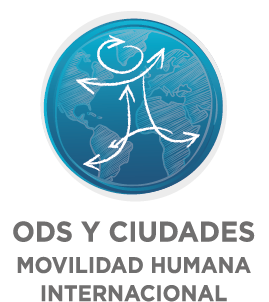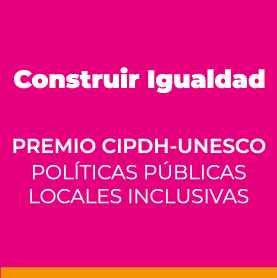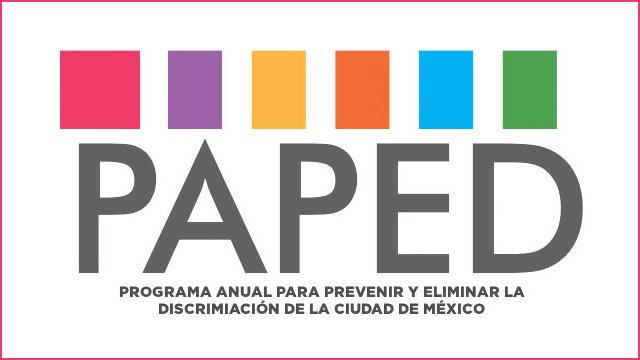
- Region
- Latin America and the Caribbean
- Range of Demographic Size
- 1,000,000 inhabitants or more (metropolis)
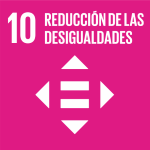
10-2 By 2030, empower and promote the social, economic and political inclusion of all, irrespective of age, sex, disability, race, ethnicity, origin, religion or economic or other status.
10.3 Ensure equal opportunity and reduce inequalities of outcome, including by eliminating discriminatory laws, policies and practices and promoting appropriate legislation, policies and action in this regard.
10.4 Adopt policies, especially fiscal, wage and social protection policies, and progressively achieve greater equality.
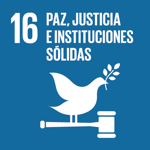
16.7 Ensure responsive, inclusive, participatory and representative decision-making at all levels.
16.b Promote and enforce non-discriminatory laws and policies for sustainable development.
• Inter-American Convention on the Elimination of all Forms of Discrimination Against Persons with Disabilities
• Inter-American Convention on the Prevention, Punishment, and Eradication of Violence against Women (Convention of Belém do Pará)
International Convention on the Elimination of All Forms of Racial Discrimination (ICERD
Convention on the Rights of Persons with Disabilities (CRPD).
Convention on the Rights of the Child (CRC).
Convention on the Elimination of all Forms of Discrimination Against Women (CEDAW).
United Nations Declaration on the Rights of Indigenous Peoples (UNDRIP).
Universal Declaration of Human Rights (UDHR).
International Covenant on Civil and Political Rights (ICCPR).
International Covenant on Economic, Social and Cultural Rights (ICESCR).
Additional Protocol to the American Convention on Human Rights in economic, social and cultural rights (San Salvador Protocol).
Summary
The Program to Prevent and Eliminate Discrimination in Mexico City (PAPED) is a program which seeks to prevent and eliminate discrimination in the City of Mexico, through public policies, legislation and cooperation with different public entities to deal with problems such as: unequal access to justice; access to observance of the rights of excluded groups based on their appearance, gender, age, educational level, ethnic origin or nationality, economic position, sexual preference or orientation, and political position, among other particular situations.
Implementation Date:
Start: 05 / 1 / 2013
End: End: Currently in force
The elderly
Women
People deprived of freedom
LGBTI Population
Indigenous peoples
Society in general
Building of partnerships, networks, associations and coalitions
Creation of entity/plan/programme
Developing of regulations
- Email: internacional.copred@gmail.com
- Web: http://www.copred.cdmx.gob.mx
- Telephone: (Español) 01 (55) 53963188
Instrumentos

10-2 By 2030, empower and promote the social, economic and political inclusion of all, irrespective of age, sex, disability, race, ethnicity, origin, religion or economic or other status.
10.3 Ensure equal opportunity and reduce inequalities of outcome, including by eliminating discriminatory laws, policies and practices and promoting appropriate legislation, policies and action in this regard.
10.4 Adopt policies, especially fiscal, wage and social protection policies, and progressively achieve greater equality.

16.7 Ensure responsive, inclusive, participatory and representative decision-making at all levels.
16.b Promote and enforce non-discriminatory laws and policies for sustainable development.
• Inter-American Convention on the Elimination of all Forms of Discrimination Against Persons with Disabilities
• Inter-American Convention on the Prevention, Punishment, and Eradication of Violence against Women (Convention of Belém do Pará)
International Convention on the Elimination of All Forms of Racial Discrimination (ICERD
Convention on the Rights of Persons with Disabilities (CRPD).
Convention on the Rights of the Child (CRC).
Convention on the Elimination of all Forms of Discrimination Against Women (CEDAW).
United Nations Declaration on the Rights of Indigenous Peoples (UNDRIP).
Universal Declaration of Human Rights (UDHR).
International Covenant on Civil and Political Rights (ICCPR).
International Covenant on Economic, Social and Cultural Rights (ICESCR).
Additional Protocol to the American Convention on Human Rights in economic, social and cultural rights (San Salvador Protocol).
Location
- Region
- Latin America and the Caribbean
- Range of Demographic Size
- 1,000,000 inhabitants or more (metropolis)
Contact details
- Email: internacional.copred@gmail.com
- Web: http://www.copred.cdmx.gob.mx
- Telephone: (Español) 01 (55) 53963188
- Social network:


